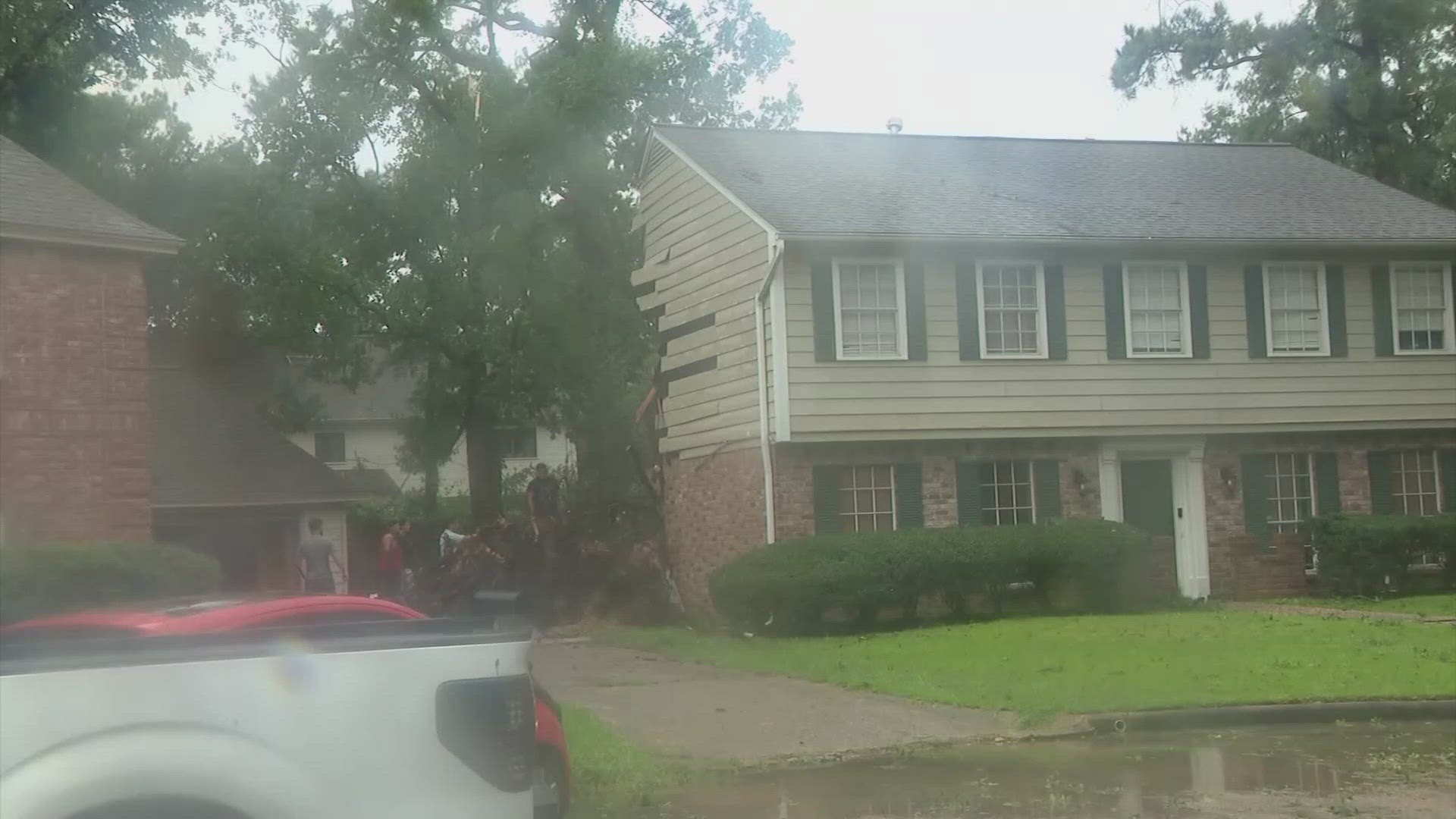HOUSTON — In order to grapple with budget shortfalls and the costs tied to a summer of severe storms, Houston City Council members are considering taking advantage of laws that would allow them to raise property taxes.
The issue was discussed Wednesday, with council members suggesting they are running out of time to avoid further budget strains.
“We have an opportunity here to address some of our immediate needs,” Council member Sallie Alcorn said. “Immediate needs and beyond.”
Alcorn is the chair of the council’s Budget and Fiscal Affairs Committee.
On Monday, the committee received a report from the city’s finance director about costs from the May derecho storm and Hurricane Beryl, its impact on the city and how the local government can address those costs.
The total cost of the derecho and Hurricane Beryl is estimated at $211 million.
The federal government is set to cover 75 percent of that cost, with the city left to cover the remaining cost, which is about $53 million.
$39 million would have to come out of the city’s general fund.
That’s a major hit for a city already facing a deficit and having to meet obligations including a new firefighter backpay cost, a pursuit for boosting the number of police officers and addressing issues like garbage pickup.
If the city does not raise property taxes, it would likely lead to tens of millions of dollars in cuts across city government, officials say.
“We can't have it both ways, we can't have great city services and the lowest tax rate in the state,” Alcorn said, noting Houston’s tax rate is second only to Austin, though the capital city has higher property valuations.
According to the city’s finance department, a raise of about 3 cents per $100 of property value would lead to about $40 million raised – enough to cover the local share of costs for the derecho and Hurricane Beryl.
That would represent, on average, about an additional $12 a month – or $140 a year – per household. Further raises, anywhere between 4 cents and 6 cents, would lead to further revenue and help alleviate the city’s other budget strains it faces.
Mayor John Whitmire said he recognizes the fiscal challenges for the city but wants to wait on the idea.
“I don't agree that raising taxes should be the only option or maybe even the first option,” Whitmire said.
The mayor wants the city to first examine where it can make cuts and improve efficiencies, before going to taxpayers with a rate hike.
“It was my desire, still is my desire to be able to tell the public that we've done everything possible to make the numbers work,” Whitmire told council members.
Part of the effort to look at efficiencies is an ongoing audit by Ernst & Young, which will release a report to the city of where the government can be more efficient and make cuts.
Some council members are wary of a further tax burden on residents because the county has already approved a tax increase and the Houston Independent School District is proposing a more than $4 billion bond.
But others believe city taxpayers would be on board if the council puts forth an effort to inform constituents and focuses on improving services.
“The one thing that [constituents] always do ask is, ‘if we trust you with this, we want to see results,’” District I Council Member Joaquin Martinez said.
To qualify for the declared disaster exception, the council would have to pass a tax hike by Oct. 28.

